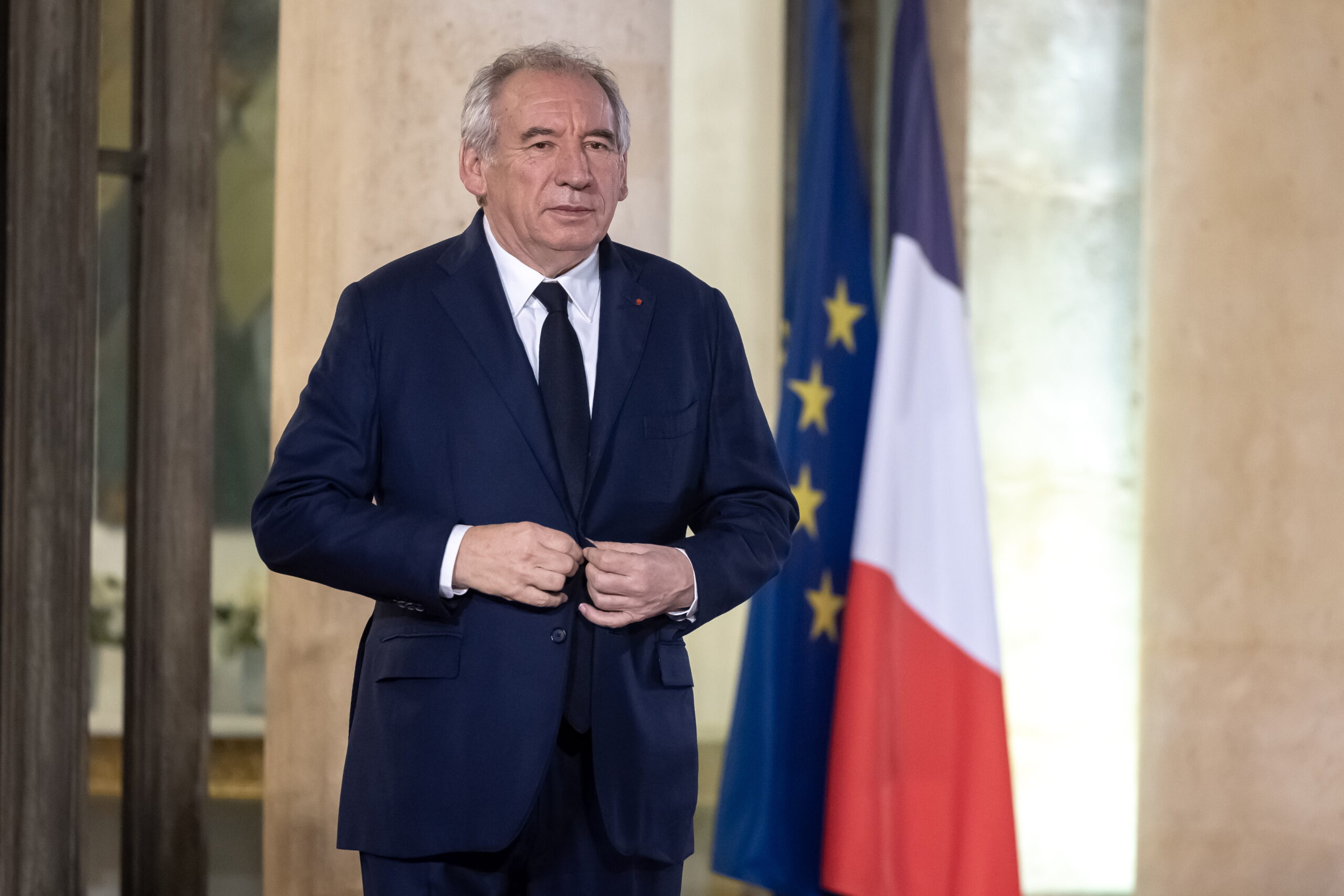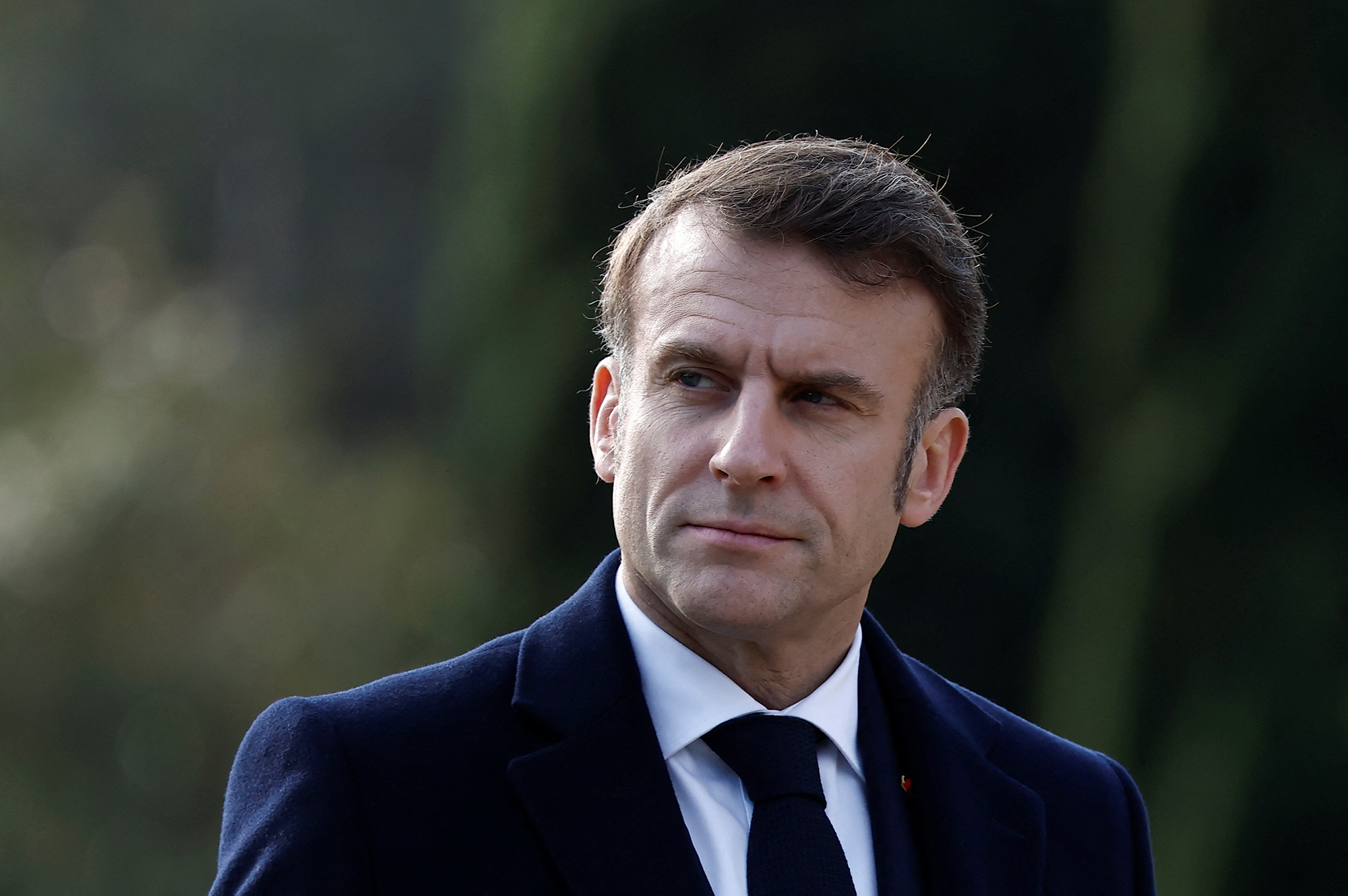D-Day for François Bayrou. French government faces vote of confidence with pre-announced outcome

The French prime minister, in office for nine months, faces a vote of confidence. Losing the vote would mean another political crisis, compounded by the economic one. The far right is lurking.
France is grappling with yet another political crisis, the fourth in less than two years. This Monday, the National Assembly will vote on a motion of confidence in François Bayrou's minority government , due to the nearly €44 billion budget cuts for next year to reduce the deficit and public debt . If the opposition follows through on its announcement, the vote will fail.
Given the political fragmentation of the French Parliament, expectations are stacked against Bayrou's government. It's currently unclear what President Emmanuel Macron will do if the motion fails : dissolving the National Assembly , which would trigger early legislative elections; simply appointing a new prime minister —who would need to be approved by a majority of the 577 deputies—or even dismissing himself, a scenario that would be even more problematic for the country and, consequently, for Europe.
“ All paths from here are likely to mean further fiscal slippages and increase pressure on France’s credit rating , given its already unfavorable fiscal outlook relative to other Eurozone peers,” notes Thomas Gabbey of Schroders.
All paths from here will likely mean further fiscal slippages and increase pressure on France's credit rating, given its already unfavorable fiscal outlook relative to other Eurozone peers.
It was in July that the leader of the French government announced his budget proposal for 2026, with 'savings' of 43.8 billion euros, 80% of which would come from spending cuts and a freeze on public spending , with reductions in public sector hiring and a freeze on pension indexation.
The main measures also include the abolition of two public holidays, tax increases in several sectors, and the application of "solidarity contributions "—not yet defined—to higher-income families. Cuts in Social Security spending are also planned to reduce the €15 billion debt in that area.
Since taking office less than a year ago, François Bayrou has stated that his goal is to reduce public debt. " There are moments in the history of nations when they must have a 'date' with themselves, and this is one of those moments. Everyone must participate in this effort, given the scale of the challenge, " he emphasized on July 15, outlining the goal of reducing the French budget deficit to 2.8% of Gross Domestic Product (GDP) by 2029, down from the current 5.8%.
The budget cuts plan aims to reduce the French budget deficit to 2.8% of Gross Domestic Product (GDP) in 2029, compared to the current 5.8%.
However, for the measures to be implemented, they will need to be formalized in a financial law for 2026 and approved by Parliament, which appears difficult since, as soon as the strategy was announced, opposition parties made their voices heard. From the radical left bloc led by Jean-Luc Mélenchon to the far-right bloc led by Jordan Bardella and Marine Le Pen, it was clear that the vote would be against it.
Bayrou still hoped to oust the center-left Socialist Party from voting alongside Mélenchon's coalition and convince the Rassemblement National (RN) to abstain on the vote of confidence, but he failed. The left-wing New Popular Front alliance came first in the last French legislative elections in 2024, electing 182 seats, while the far-right party came third with 143 seats .
The Socialist leader directly appealed to Macron to "choose a moderate left prime minister who wants to govern" and already has a plan to cut 22 billion euros.
Socialist leader Olivier Faure said last Thursday that the party would not "change its mind" after deciding to bring down the government in Monday's vote. Faure directly appealed to Macron to "choose a moderate-left prime minister who wants to govern," although he set a price for cooperation: the next government leader will have to implement the Socialist budget proposal, which includes a €22 billion cut, tax increases, and renegotiation of Macron's controversial decision to raise the retirement age.
On the far-right side, Politico reported that if Macron schedules new elections in response to the possible failure of the confidence vote, Le Pen will attempt to run on the RN 's ticket, immediately filing an appeal against the French court's March conviction for embezzlement. "If the question is: do we have confidence in this government? The answer is no, we don't," she stated after meeting with Bayrou on Tuesday. In July, she promised to run in any new elections, despite being barred from doing so by the court.

Meanwhile, on Friday, the international press reported that the French head of state wants to quickly appoint a new prime minister after the likely fall of the government, avoiding the need to call new elections. The goal is to choose François Bayrou's replacement by September 18th, the day many of the country's largest unions plan to strike—in addition to calls for a nationwide strike next Wednesday, September 10th.
Sébastien Lecornu, the current Minister of the Armed Forces, is once again one of the names being considered for the position . The 39-year-old politician is the only surviving leader in the French executive branch since Emmanuel Macron arrived at the Élysée Palace in 2017, surviving numerous reshuffles and early elections. Other possible replacements include Justice Minister Gérald Darmanin, Labor and Health Minister Catherine Vautrin, and Economy Minister Éric Lombard.
But Macron is increasingly less immune to the crisis's shattering effects. Almost two-thirds of French people want the French president to resign . According to a poll by Odoxa-Backbone for the conservative newspaper Le Figaro , 64% of respondents indicated they wanted a new occupant of the Élysée Palace and the holding of early presidential elections, rather than the appointment of a fifth prime minister in less than two years. Furthermore, 56% called for the dissolution of the government and the holding of early legislative elections to find a solution to the country's crisis.
In another poll, by Verian for Le Figaro magazine, only 15% of French people said they trust Macron, a sharp and unprecedented drop of six points compared to July. The French president is also losing the trust of first-round voters in 2022, with just 45% in favor (-14 points in one month), the lowest level seen since he was first elected in 2017, according to a second poll by Elabe for the business newspaper Les Échos .
In a poll for Le Fiagro, 64% of respondents indicated they wanted a new occupant at the Élysée Palace and the organization of early presidential elections, rather than the appointment of a fifth prime minister in less than two years.
“ We expect France to remain politically unstable at least until the next presidential election, struggling to reverse its unhealthy fiscal trajectory and acting as a drag on European growth ,” said Christian Schulz, Chief Economist at Allianz Global Investors (Allianz GI).
Public finances also in crisisPolitical turmoil exacerbates market distrust in a country already under pressure due to high levels of public debt and budget deficits, and slowing economic growth. " The likely fall of the government will weigh heavily on the French economy ," warns Charlotte de Montpelliera, an economist at ING Research, noting that the "economy was already weak, and the political crisis adds a new layer of uncertainty."
European Commission forecasts, released in May, point to a sharp slowdown in economic growth, falling from 1.4% in 2024 to 0.6% this year, influenced by budgetary adjustments and international trade uncertainty. According to Brussels' estimates, the budget deficit is expected to fall from 5.8% to 5.6% in 2025, rising to 5.7% of GDP in 2026 , while public debt is expected to rise to 118.4% of GDP by 2026, as the primary deficit remains high. These two indicators are above the 3% and 60% levels recommended by the European Commission, respectively.
Note: If you are accessing through apps, click here to open the chart.
This is one of France's biggest economic challenges today. High public spending—to which defense investment will be added—needs to be paid, and taxes are no longer sufficient in a country with the highest tax burden in the developed world, accounting for almost 44% of GDP in 2023 , according to OECD data.
And in May, Brussels noted that the forecast economic slowdown for 2025 should weigh on tax revenues, which should rise again slightly below economic activity , while rising unemployment should increase the burden on benefits and pension expenditure represents almost 15% of current economic output.
Preparing and approving the 2026 budget will become even more difficult, delaying fiscal consolidation and potentially worsening France's debt trajectory. The longer reforms are delayed, the greater the necessary budgetary adjustment.
" Preparing and approving the 2026 budget will become even more difficult, delaying fiscal consolidation and potentially worsening the trajectory of French debt. The longer reforms are delayed, the greater the necessary budgetary adjustment," warns Charlotte de Montpelliera, an economist at ING.
With political instability reducing economic predictability and reforms systematically blocked by parliamentary impasses, the Republic's financing costs are among the first to be affected.
Long-term 30-year yields reached their highest level since 2011 at the beginning of last week, surpassing 4.5%, while the cost of 10-year French sovereign bonds also rose, reaching 3.58% on Tuesday, approaching the levels of Italian debt.

" Borrowing costs in France have risen and stock markets have been falling as investors try to digest the possibility of a government collapse as early as September 8th . We expect continued underperformance of French risk assets, a widening of sovereign spreads , and headwinds for the euro until the political turmoil subsides," said Christian Schulz, chief economist at Allianz GI.
However, it emphasizes that "reforms in the smaller Eurozone countries to increase competitiveness and fiscal discipline" can help "reduce the risk of broader contagion in the growing spreads of French sovereign bonds."
Borrowing costs in France have risen and stock markets have been falling as investors try to digest the possibility of a government collapse as early as September 8.
Thomas Gabbey, fund manager at Schroders, points out that one of the main themes the asset manager has been focusing on this year is signs of a European recovery, driven predominantly by industry and aided by the radical shift in German fiscal policy. " The renewed political uncertainty in France has the potential to frustrate the recovery of European growth and is something we will monitor closely for signs of an impact on business optimism," he explains.
European Central Bank (ECB) President Christine Lagarde has already warned that the risks of a government collapse in any Eurozone country are worrying when asked about the possible fall of the French government. Even so, she sought to downplay the possibility of France having to request intervention from the International Monetary Fund (IMF).
" Countries request IMF intervention in circumstances where the current account is in serious deficit and the country is unable to meet its obligations. This is not the case with France ," said the ECB president and former IMF leader.
The possibility of a potential IMF loan request began to be analyzed in some international media following the rise in France's borrowing costs. A request for intervention typically arises when a country is no longer able to obtain financing in the financial markets because creditors no longer believe in its repayment capacity.
Prior to this, France could alternatively apply for a loan from the ECB, subject to approval by the European Commission and the Eurozone countries. In exchange, it would have to sign a structural reform plan, tying its action.
For now, Fitch has scheduled an assessment of French sovereign debt for Friday, September 12.
ECO-Economia Online





